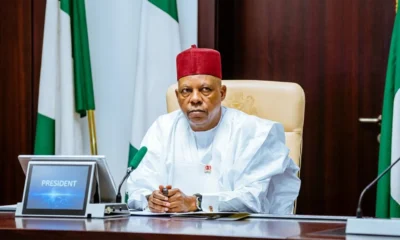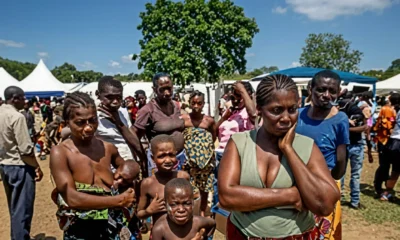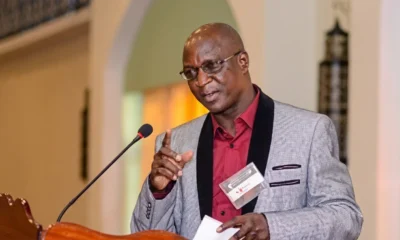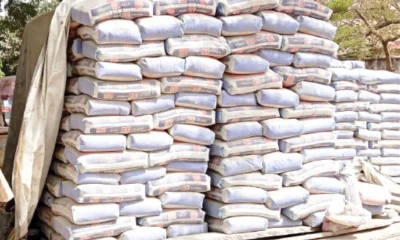News
World Bank dismisses Nigeria’s single-digit inflation target
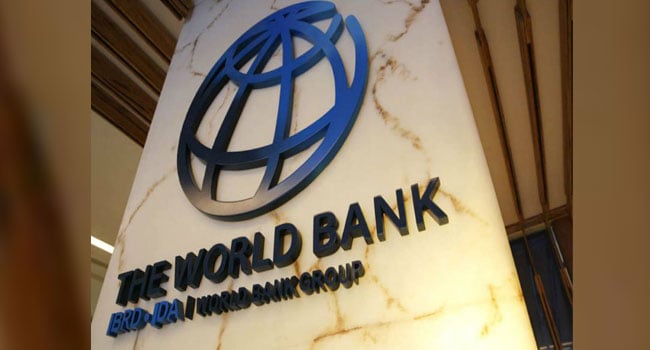
The World Bank has said the Federal Government’s ambition to achieve single-digit inflation in the short term is unrealistic, warning that Nigeria remains among a handful of African countries still grappling with high Consumer price inflation.
In its latest Africa’s Pulse report released on Tuesday, the Bank projected that Nigeria, alongside Angola, Ethiopia, Ghana, Malawi, Sudan, Zambia, São Tomé and Príncipe, and Zimbabwe, will continue to record double-digit inflation rates through 2025.
The report revealed that while 37 of Africa’s 47 economies are projected to maintain single-digit inflation by 2026, Nigeria remains an outlier due to persistent structural challenges, including currency depreciation, high food and energy prices, and supply bottlenecks that continue to fuel price instability.
The development contradicts the projection undermines the Federal Government’s optimism that its recent fiscal and monetary reforms, including the FX unification, fuel subsidy removal, and the Central Bank’s tightening measures, would quickly drive inflation down to single digits.
The PUNCH reports that key government officials in the current administration, including the Minister of Finance and Coordinating Minister for the Economy, Wale Edun, and the Governor of the Central Bank of Nigeria, Olayemi Cardoso, have repeatedly assured Nigerians that ongoing fiscal and monetary reforms would help bring inflation down to single digits in the near term.
At the CBN Governor’s Annual Lecture Series at the Lagos Business School, held last week in Lagos, Cardoso said a single-digit inflation rate remains its medium-term target.
The insistence stems from an argument by some research organisations that the National Bureau of Statistics data, which puts the country’s headline inflation at 20.12 per cent, overestimates the general price level.
“The idea is to ensure that in the medium term we achieve single-digit inflation,” he said at the gathering.
But the World Bank in its evaluation noted that despite a broad wave of disinflation sweeping across Sub-Saharan Africa, Nigeria remains one of the few countries still trapped in double-digit inflation, even as price growth across the region slows to historic lows.
The report released biannually is titled, “Pathways to Job Creation in Africa.”
It read, “Consumer price inflation has continued to recede across most Sub-Saharan African
countries, albeit at varying speeds. After peaking at 9.3 per cent in 2022, the region’s
median inflation rate declined to 4.5 per cent in 2024 and is projected to stabilize between
3.9 and 4.0 per cent annually over 2025–26. The number of countries in the region with single-digit inflation rates has increased from 27 in 2022 to 37 in 2025–26.
“In 2025, nearly 60 per cent of Sub-Saharan African countries have experienced a slowdown in consumer price inflation from last year. However, within this group, nine countries, Angola, Ethiopia, Ghana, Malawi, Nigeria, São Tomé and Príncipe, Sudan, Zambia, and Zimbabwe, are still expected to record double-digit inflation rates.”
The World Bank said Sub-Saharan Africa’s economy remains resilient despite global economic headwinds, projecting regional growth to accelerate from 3.5 per cent in 2024 to 3.8 per cent in 2025 and an average of 4.4 per cent in 2026–27.
Nigeria’s growth forecast was upgraded by 0.6 percentage points, one of the strongest revisions among major economies, driven by a rebound in oil production and modest investment flows. But the bank warned that inflation remains a key drag on household welfare and business confidence.
“While countries like Ivory Coast and Kenya are benefiting from price stability and easing monetary conditions, Nigeria’s inflation trajectory continues to undermine consumer demand and macroeconomic stability,” the report read.
Economists have attributed Nigeria’s price pressures to a combination of currency depreciation, high energy costs, and food supply disruptions worsened by insecurity and poor logistics.
With more than half of Sub-Saharan African nations expected to maintain inflation rates below five per cent next year, Nigeria’s double-digit figure stands out as an anomaly on the continent.
South Africa, Senegal, and Tanzania have all managed to anchor inflation within single digits, aided by disciplined fiscal policies and efficient foreign exchange management.
“The median inflation in the region is less than four per cent. Moreover, most currencies that were cratering relative to the US dollar have now recovered and are stable,” said Andrew Dabalen, the World Bank’s Chief Economist for Africa. “Nigeria’s situation remains challenging because of exchange rate pass-through and structural supply bottlenecks.”
The Bretton wood institution also cautioned that despite the region’s economic resilience, growth remains insufficient to create enough decent jobs for its expanding labour force.
“External debt service has more than doubled over the past decade, reaching two per cent of GDP in 2024,” the report noted. “The number of Sub-Saharan African countries at high risk of debt distress has nearly tripled since 2014.”
For Nigeria, where unemployment and underemployment persist, the inflation surge has worsened living standards and dampened real income growth.
The report urged African governments to prioritise policies that reduce the cost of doing business, build human capital, and strengthen institutions to attract private investment.
It also identified agribusiness, healthcare, housing, tourism, and mining as sectors with the highest job-creation potential, noting that every job created in tourism spurs 1.5 additional jobs in related sectors.
“Over the next quarter century, Sub-Saharan Africa’s working-age population will grow by more than 600 million,” Dabalen said. “The challenge is ensuring that these people find better jobs in an environment of stability and opportunity.”(Punch)
-

 News19 hours ago
News19 hours agoNo Power Can Stop Muslims From Practising Shariah – Shariah Council
-

 Business16 hours ago
Business16 hours agoFG deepens CREDICORP, targets wider coverage, disbursements
-

 News16 hours ago
News16 hours agoOver 100 terrorists storm Benue villages, kill 150 – Witness tells court
-

 Sports10 hours ago
Sports10 hours agoUCL Round of 16: Osimhen to face Liverpool as Real Madrid, Man City renew rivalry
-

 News16 hours ago
News16 hours agoNorthern Christian leaders drop ‘CAN’ title, adopt old identity
-

 Sports19 hours ago
Sports19 hours agoChelle justifies $130k salary demand, denies exit threat
-

 Business16 hours ago
Business16 hours agoBag Of Cement Climbs To N11,000
-

 News17 hours ago
News17 hours agoEFCC detains Ozekhome over ‘Tali Shani’ UK property affair





